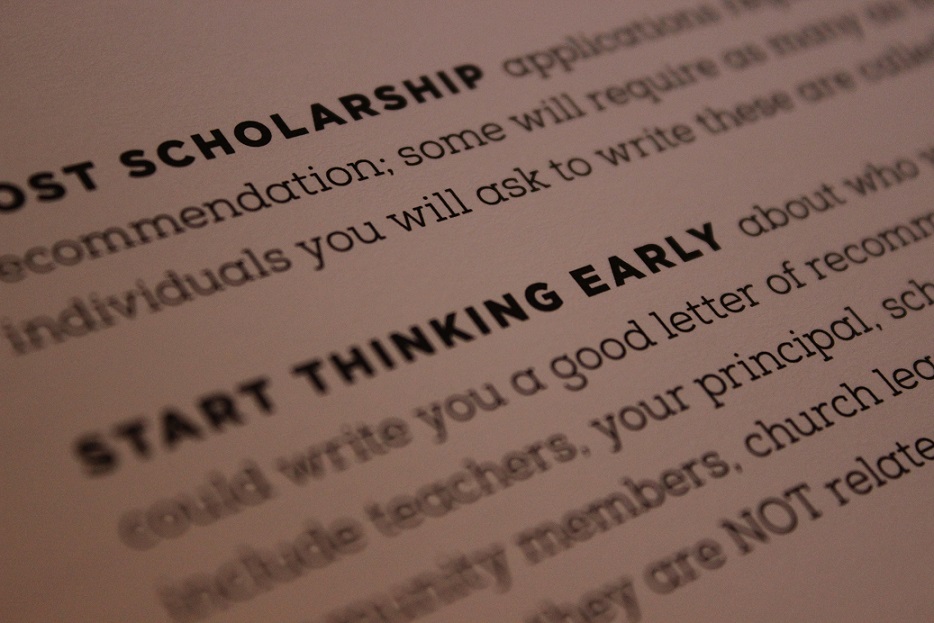
Most scholarship applications require a letter of recommendation, some will require as many as three. The individuals you will ask to write these letters are called references.
Getting a great letter of recommendation takes a little planning on your part.
Here are 8 tips to keep in mind:
1. Start thinking early about who could write you a good letter of recommendation. Common examples include teachers, your principal, school counselors, employers, community members, church leaders, etc.… Anyone can do this, as long as they are NOT related to you.
Did you know? Teachers are the most common required authors of recommendation letters. It is important to build relationships with your teachers early to ensure that they will be willing and able to write you a good letter of recommendation.
2. Some people will serve as better references for certain scholarships. If you are applying for a community service focused scholarship, it would benefit you to get letters of recommendation from individuals who have interacted with you in this capacity. However, if you are applying for a math scholarship, you will want to ask people who can attest to your mathematical abilities.
3. If you are given a copy of a recommendation letter, make copies and save a digital version. These saved letters can be used in situations that do not require the recommendation to come directly from the author. But keep in mind that original, signed letters may carry more weight than electronic or copied letters.
4. Come up with a diverse list of potential references, e.g. not all teachers.
5. Provide your recommender with your resume. Even though you should be choosing people who know you well, it is helpful to remind them of your activities and accomplishments. This will make it easy for them to talk about your skills and involvement specifically, ensuring a more personal letter. You should also tell them what the recommendation is for, so they can highlight the reasons why you should be chosen.
6. If there are special requirements for the letter, these will be provided to you. Make sure you read them carefully. For example, some committees require:
- A survey to be filled out by your recommender and accompanied by the letter
- The letter to be printed on official letterhead
- The letter be sealed and signed across the seal
- The letter to be mailed directly from the author
7. It is a nice gesture to provide your recommender with all the materials they will need to deliver your recommendation. If the author needs to mail the letter directly to the scholarship committee, make sure you provide a stamp and envelop, unless it must be sent in an official envelop. Once again, read all the directions.
8. Send a thank you to everyone who gave you a recommendation. Send another thank you if you receive the scholarship, mentioning your appreciation for their role in you receiving the award.
Quick Tips:
- Start early building relationships with individuals you may use as references.
- Come up with a list of potential references.
- Choose people who know you well. Most applications will ask you how long you have known the individual.
- Make sure your references are good writers and that they are comfortable writing letters of recommendation.
- Ask early for letters of recommendation, not only is this courteous, it also ensures that they will have plenty of time to complete the letter before the deadline.
- Don’t expect to be able to read the recommendation for your approval, so choose your references wisely because many letters must be sealed.
- Follow the specific requirements given on each application.
- Provide your reference with your resume and any other information and materials they might need.
- Thank your references, and send another thank you if you receive the award.
______________________________
Today’s guest blog post is contributed by ScholarPrep! The organization brings students, parents, and counselors together to prepare for the college and scholarship application process. The ScholarPrep Organizer saves time and money by encouraging students to start planning for their future now, helping them to set goals, organize information, and track their progress.

